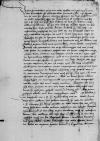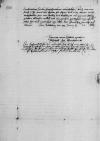Wie E(wer) H(erlichkei)t cf. Johann von WERDEN to Ioannes DANTISCUS 1546-05-10 — 1546-06-11, CIDTC IDL 6843, letter lost⌊schreibtcf. Johann von WERDEN to Ioannes DANTISCUS 1546-05-10 — 1546-06-11, CIDTC IDL 6843, letter lost⌋, / das die mit den ihrenn / aus den schweren der Gdańsk (Danzig, Dantiscum), city in northern Poland, on the Bay of Gdańsk at the mouth of the Vistula, on the Baltic, the biggest and wealthiest of the three Great Prussian Cities (Gdańsk, Thorn (Toruń), and Elbing (Elbląg)) with representation in the Council of Royal Prussia; a member of the Hanseatic League⌊stadtGdańsk (Danzig, Dantiscum), city in northern Poland, on the Bay of Gdańsk at the mouth of the Vistula, on the Baltic, the biggest and wealthiest of the three Great Prussian Cities (Gdańsk, Thorn (Toruń), and Elbing (Elbląg)) with representation in the Council of Royal Prussia; a member of the Hanseatic League⌋ gescheftenn / in gutter gesuntheit ghen der Neuenburg (Nowe), town in northern Poland, Pomerania, on the Vistula river, 19 km N of Graudenz⌊NeuenburgNeuenburg (Nowe), town in northern Poland, Pomerania, on the Vistula river, 19 km N of Graudenz⌋ ist ankomen / und das sich E(wer) H(erlichkei)t auf den zugk thut rustenn, / ist uns zu sondrem wolgefallenn zukomen. / Es hat uns auch vor etlichen thagen / der hochwirdige herr, / unser geliebter bruder, Tiedemann Giese (Tidemannus Gisius) (*1480 – †1550), in 1519 ennobled by King Sigismund I; 1504-1538 Canon of Ermland (Warmia); 1516-1527, 1533-1537 Judicial Vicar and Vicar General of Ermland; 1523-1538 Custos of Ermland; 1537-1549 Bishop of Kulm (Chełmno); 1549-1550 Bishop of Ermland (BORAWSKA 1984, passim)⌊bisschoff zu ColmeseheTiedemann Giese (Tidemannus Gisius) (*1480 – †1550), in 1519 ennobled by King Sigismund I; 1504-1538 Canon of Ermland (Warmia); 1516-1527, 1533-1537 Judicial Vicar and Vicar General of Ermland; 1523-1538 Custos of Ermland; 1537-1549 Bishop of Kulm (Chełmno); 1549-1550 Bishop of Ermland (BORAWSKA 1984, passim)⌋ / E(wer) H(erlichkei)t mheinung angetzeigt, / das sein liebe vor das fueglichste achtet, / der tzug noch bliebe an stehen / bis noch s(ancti) Iacobi thag[1] / vonn wegen der schwerheit der zeit, / die herann dringt / und teurer zeit halben, / auch vonn wegen mangels futters und profiands von der Vilnius (Wilno, Vilna), city in Lithuania, on the Vilnia river, capital of the Grand Duchy of Lithuania⌊WildenVilnius (Wilno, Vilna), city in Lithuania, on the Vilnia river, capital of the Grand Duchy of Lithuania⌋ noch Cracow (Kraków, Cracovia), city in southern Poland, Małopolska, on the Vistula river, from 1038 capital of the Kingdom of Poland⌊CkrakoCracow (Kraków, Cracovia), city in southern Poland, Małopolska, on the Vistula river, from 1038 capital of the Kingdom of Poland⌋ / etc. unsern rath unnd gutdunckenn seiner liebden mitzuteilen, / darauf wir geantwurt, / das es der bekuemigheit noch woll mocht stelle haben, / die wichtigen geschefte aber dis Royal Prussia (Prussia Regalis), region, part of Prussia annexed to the Kingdom of Poland in 1466 under the provisions of the Second Peace of Thorn⌊landsRoyal Prussia (Prussia Regalis), region, part of Prussia annexed to the Kingdom of Poland in 1466 under the provisions of the Second Peace of Thorn⌋, / welchs kein verzog mugen leiden, / furderen, / das voltzogen wurde mit den ersten, / was zu Marienburg (Malbork), town and castle in northern Poland, Pomeranian Voivodeship, on the Nogat river, a branch of the Vistula at its delta, the capital of the Grand Masters of the Teutonic Order in Prussia (1309-1457), a voivodeship capital in Royal Prussia, which belonged to the Kingdom of Poland (1466-1772). Marienburg (taking turns with Graudenz (Grudziądz)) was the venue for the Provincial Diets of Royal Prussia, which were chaired by the bishop of Ermland (Warmia)⌊MarienburgMarienburg (Malbork), town and castle in northern Poland, Pomeranian Voivodeship, on the Nogat river, a branch of the Vistula at its delta, the capital of the Grand Masters of the Teutonic Order in Prussia (1309-1457), a voivodeship capital in Royal Prussia, which belonged to the Kingdom of Poland (1466-1772). Marienburg (taking turns with Graudenz (Grudziądz)) was the venue for the Provincial Diets of Royal Prussia, which were chaired by the bishop of Ermland (Warmia)⌋ beschlossenn, / weil es ane zweivel / an beiden konig(liche)n hoven nu mher schalbar ist wordenn, / das solche botschaft alle thage unnder wegenns sol sein. / Es mochte auch solch lang ausbleiben bey ko(nigliche)n hoven dermassenn werden aufgenhomen, / gleich, ob uns unser anliegen, / darinne die botschaft abgefertigt, / nicht hertzlich were etc. / In gemeinem sprichwort wirt auch gesagt, /
⌊das eisen sol man schmiden, / die weile es glüett / etc. ⌋
Wirt an konig(liche)n hoven irkeine nochlessigheit an uns vormerckt, / vil weniger wirt ausgerichtet werden, / mhue, kost unnd arbeit verloren. / Vortzeiten ists auch fast teuer gewesen, / da wir auf unser unkosten etlich mhal dem Royal Prussia (Prussia Regalis), region, part of Prussia annexed to the Kingdom of Poland in 1466 under the provisions of the Second Peace of Thorn⌊landeRoyal Prussia (Prussia Regalis), region, part of Prussia annexed to the Kingdom of Poland in 1466 under the provisions of the Second Peace of Thorn⌋ zu gutt sein geschickt worden, / derweg(en) nu solchs unangesehenn bleiben / und dem nachgekomen, / was die paper damaged⌈[ie]ie paper damaged⌉ n paper damaged⌈[n]n paper damaged⌉ot furdert etc. Die furschrifte, / wie E(wer) H(erlichkei)t zu Marienburg (Malbork), town and castle in northern Poland, Pomeranian Voivodeship, on the Nogat river, a branch of the Vistula at its delta, the capital of the Grand Masters of the Teutonic Order in Prussia (1309-1457), a voivodeship capital in Royal Prussia, which belonged to the Kingdom of Poland (1466-1772). Marienburg (taking turns with Graudenz (Grudziądz)) was the venue for the Provincial Diets of Royal Prussia, which were chaired by the bishop of Ermland (Warmia)⌊MarienburgMarienburg (Malbork), town and castle in northern Poland, Pomeranian Voivodeship, on the Nogat river, a branch of the Vistula at its delta, the capital of the Grand Masters of the Teutonic Order in Prussia (1309-1457), a voivodeship capital in Royal Prussia, which belonged to the Kingdom of Poland (1466-1772). Marienburg (taking turns with Graudenz (Grudziądz)) was the venue for the Provincial Diets of Royal Prussia, which were chaired by the bishop of Ermland (Warmia)⌋ mit uns paper damaged⌈[s]s paper damaged⌉ beredt, inns The Low Countries (Netherlands), region around the delta of the Rhine, Schelde (Scheldt), and Meuse rivers, includes modern Belgium, the Netherlands, Luxembourg and parts of northern France and western Germany⌊NiderlantThe Low Countries (Netherlands), region around the delta of the Rhine, Schelde (Scheldt), and Meuse rivers, includes modern Belgium, the Netherlands, Luxembourg and parts of northern France and western Germany⌋ / wollenn zeit habenn. / Darnach zu wart paper damaged⌈[t]t paper damaged⌉en, / wurden E(wer) H(erlichkei)t jungen zu lange gefallen. / Der bittet diesen thag sein abrichtung zuhabenn. / Under anderen gescheftenn, / von negster Provincial Diet of Royal Prussia ⌊thagfartProvincial Diet of Royal Prussia ⌋ heimkomende, / ist uns solche unsere beredung / nicht zu gedechtnis komen. / Wir wollenn aber diese thage, / so schleumig es von uns geschehen mag, / an die regentin, / herren Cornelis De Schepper (Cornelius Scepperus, Cornelis De Dobbele, Cornelius Duplicius) (*1503 – †1555), erudite, diplomat in the Habsburgs' service; close friend of Ioannes Dantiscus; initially in the service of Christian II of Oldenburg, King of Denmark; 1526 secretary and councillor to Emperor Charles V of Habsburg (CE, vol. 3, p. 218-220; DE VOCHT 1961, p. 15-24)⌊Cornelium Sceppern(n)Cornelis De Schepper (Cornelius Scepperus, Cornelis De Dobbele, Cornelius Duplicius) (*1503 – †1555), erudite, diplomat in the Habsburgs' service; close friend of Ioannes Dantiscus; initially in the service of Christian II of Oldenburg, King of Denmark; 1526 secretary and councillor to Emperor Charles V of Habsburg (CE, vol. 3, p. 218-220; DE VOCHT 1961, p. 15-24)⌋ / und hern Wolfgang (Wolf) Haller von Hallerstein (*1492 – †1559), Fuggers' factor in Antwerp and their chief representative in Spain, financial advisor to Emperor Charles V and mediator for the financing of his election, from 1531 General Treasurer of the Netherands under regent Queen Mary of Hungary; Fuggers' factor (MUFFAT, p. 97)⌊Wolfen HallerWolfgang (Wolf) Haller von Hallerstein (*1492 – †1559), Fuggers' factor in Antwerp and their chief representative in Spain, financial advisor to Emperor Charles V and mediator for the financing of his election, from 1531 General Treasurer of the Netherands under regent Queen Mary of Hungary; Fuggers' factor (MUFFAT, p. 97)⌋ hofmeister / mit vleis schreiben / unnd die brive an unsernn gutten freundt, h(ern) Eggert van Kempen (*1471 – †1557), father of Ermland dean Eggert van Kempen; 1520 Gdańsk alderman; 1522 - town councillor (ZDRENKA 2, p. 158; SZORC 1990, p. 89, 121, 383)⌊Eggert von KampernEggert van Kempen (*1471 – †1557), father of Ermland dean Eggert van Kempen; 1520 Gdańsk alderman; 1522 - town councillor (ZDRENKA 2, p. 158; SZORC 1990, p. 89, 121, 383)⌋, /  APG 300, 53, 269, p. 104 Constantinus Ferber (*1520 – †1588)⌊Constantino FerberConstantinus Ferber (*1520 – †1588)⌋ zugeschriebenn, / uberschicken. / Auch was wir sunst E(wer) H(erlichkei)t unnd den ihrenn zu ehren und nutz werden wissen vortzustellen, sein wir willig und erbottig, / die wir hiemit gotlich(en) gnaden bevelhen / und d(er) mit der gantzen gesellschaft / eine gluckselige hin und widerfart von Gote dem almechtig(en) wunsch(en) und bittenn. /
APG 300, 53, 269, p. 104 Constantinus Ferber (*1520 – †1588)⌊Constantino FerberConstantinus Ferber (*1520 – †1588)⌋ zugeschriebenn, / uberschicken. / Auch was wir sunst E(wer) H(erlichkei)t unnd den ihrenn zu ehren und nutz werden wissen vortzustellen, sein wir willig und erbottig, / die wir hiemit gotlich(en) gnaden bevelhen / und d(er) mit der gantzen gesellschaft / eine gluckselige hin und widerfart von Gote dem almechtig(en) wunsch(en) und bittenn. /
 APG 300, 53, 269, p. 104
APG 300, 53, 269, p. 104 

